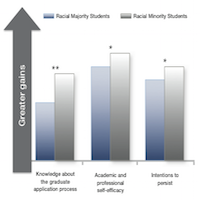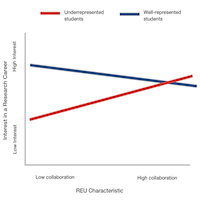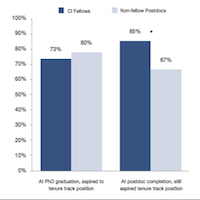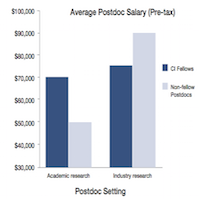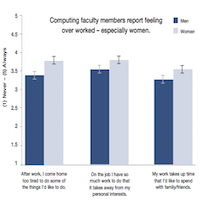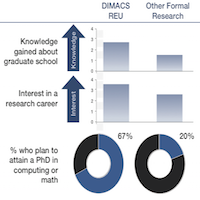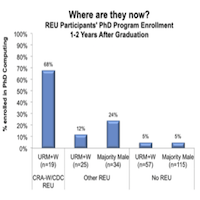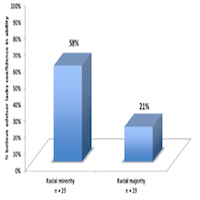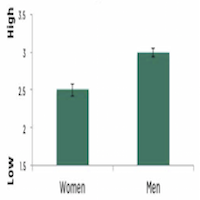
Gender Stereotype Endorsement
One hundred eighteen graduate students (n = 75 women, n= 143 men) indicated (a) the degree to which they endorse the stereotype that women are less capable in computing that men; (b) how much they felt they “belong” in computing and (c) their self-efficacy in computing. Men endorsed the negative stereotype to a greater degree than women, p < .01. However, among women, stronger endorsement of the negatively stereotype was associated with a lower sense of belonging and lower sense efficacy in computing, ps < .05; men’s stereotype endorsement was unrelated to their belonging and self-efficacy. These results highlight the importance of fostering a stereotype-free training environment so that women’s self-concept in computing is unconstrained by negative cultural beliefs about their ability.



